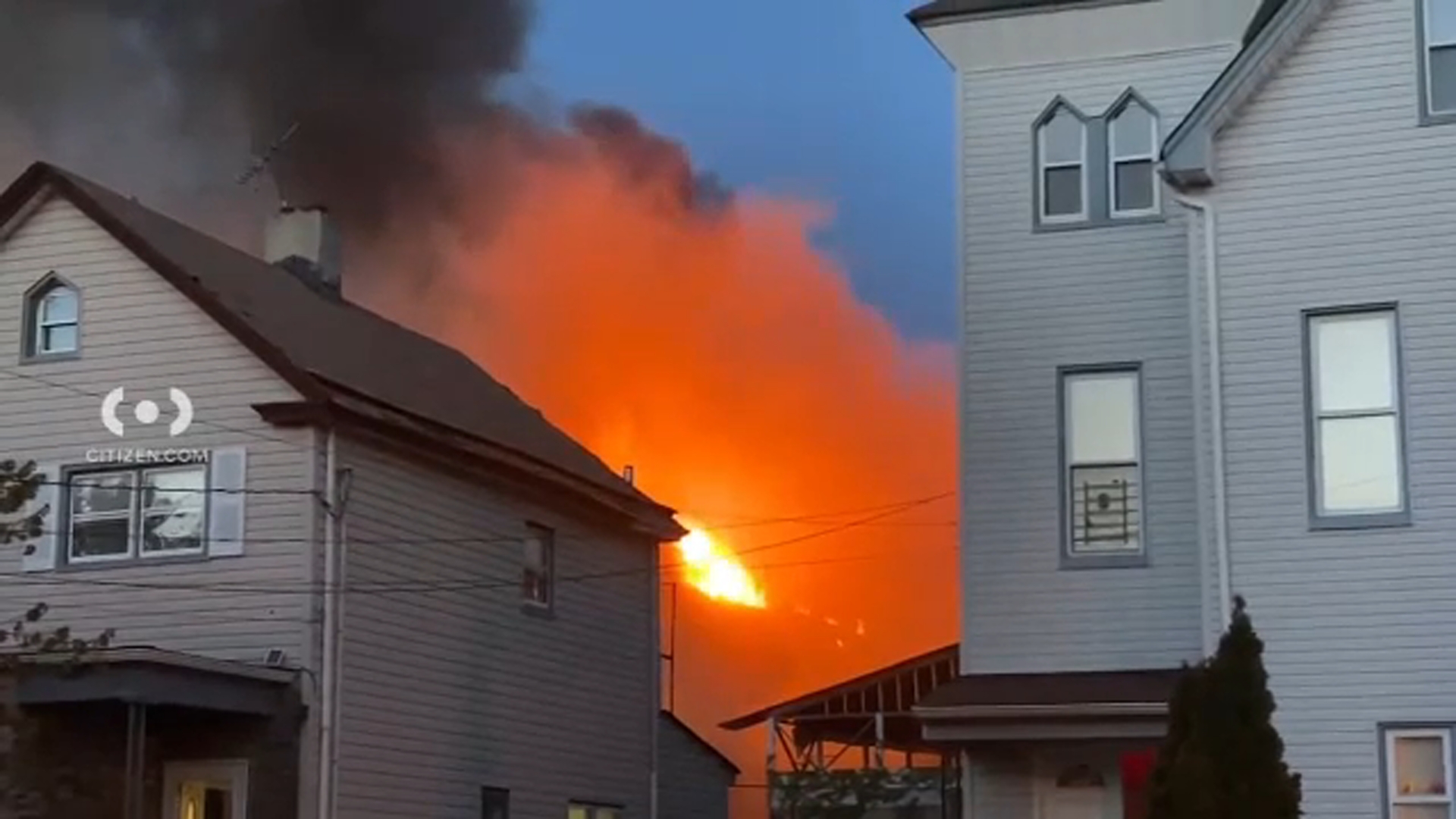The biggest NHL playoff goalie dilemmas -- and who should get the start

The 2020 NHL playoffs will be unlike any postseason that preceded them -- and perhaps the last 24-team tourney the league stages for some time.
But as with any edition of the Stanley Cup playoffs, goaltending will be a deciding factor on which teams advance, and which teams leave their hub city early. For some teams, there's a clear No. 1 who will be tapped for this duty; for others, it's not so clear.
We gathered our panel to take a closer look at the latter group. We've examined the debate between two (or three) options, and made our picks on who gets the nod.
Note: Advanced stats are from Hockey Reference and Natural Stat Trick.
Play-in round teams
Arizona Coyotes
The candidates: Darcy Kuemper, Antti Raanta
Kuemper was the primary starter in Arizona ahead of Raanta until a lower-body injury sidelined him before the new year. He returned at the end of February and registered four starts before the NHL hit the pause button on the season. Raanta finished 2019-20 with 33 games played to Kuemper's 29.
The basic numbers are pretty similar for the two goaltenders: Kuemper finished the season with a .928 save percentage, and Raanta was at .921. Kuemper, however, had a .934 even-strength save percentage, which was third in the NHL and well ahead of Raanta's .921. Kuemper also has Raanta edged in high-danger save percentage, .834 to .791. There's a reason coach Rick Tocchet called the 30-year-old the team's best player back in February.
Neither has immense playoff experience, mainly playing in relief. But Kuemper did start five games for the Wild in the 2014 playoffs, winning three and posting a 2.03 goals-against average. Kuemper would seem to have the advantage here, but don't forget that Raanta has 15 games in 2020 under his belt, as opposed to Kuemper's four, and he scrambled together a nice .943 save percentage in February before play was suspended. There's no denying Raanta was playing very good hockey at the end of the season. So who deserves the call?
Greg Wyshynski, senior NHL writer: Kuemper. If the best argument for Raanta is that he was playing very good hockey before the pause, let's remember that was close to four months and a collective bargaining agreement ago. Kuemper has the numbers and has earned the right to get the nod for the qualification round against the Predators, against whom he's 5-2-1 with a .920 save percentage in his career.
Emily Kaplan, national NHL reporter: Kuemper, though it might be moot. These two are so injury-prone, it feels inevitable the Yotes will need to use both.
Ben Arledge, NHL editor: Kuemper. He probably should have been a Vezina Trophy finalist in 2018-19, and was well on his way to a nomination this season before an injury sidelined him. Raanta is more than capable, but it's obviously Kuemper's net against Nashville.
Vince Masi, ESPN Stats & Information: Kuemper. According to Evolving Hockey, Kuemper had the second-best Fenwick save percentage relative to expectation at even strength of any goalie with 1,000 minutes this season. Even in his four games back from injury before the pause, Kuemper posted a .924 save percentage.
The verdict: Darcy Kuemper, 4-0.
Carolina Hurricanes
The candidates: Petr Mrazek, James Reimer
Mrazek wasn't his best this season, posting a .905 save percentage (.912 at even strength), but he helped a young Hurricanes team to the Eastern Conference finals a year ago, and started 38 games in 2019-20 to Reimer's 24. He was better in high-danger situations, too.
Reimer did have the better statistics overall this season. His even-strength save percentage was .922, his goals saved above average was 3.38 (vs. Mrazek's minus-5.35) and he had a save percentage above .900 in a third of his starts. But are the statistical differences big enough to push Reimer, a backup during the season, into the driver's seat now? It's even less likely when you consider that Reimer's last playoff start, one of only seven in his career, came in 2013 -- a massive Game 7 collapse. Mrazek, on the other hand, has 21 career playoff starts, all of which are more recent. Do we think there's a chance Reimer could jump Mrazek as the Game 1 starter?
Wyshynski: Mrazek. His series against the Washington Capitals last postseason featured some opening night jitters, some performances that looked better than they were on paper and at least five games when he was really solid. I've always fancied his scrambling style -- he's like a poor man's Jonathan Quick, who himself was a poor man's Dominik Hasek. Ultimately, though, it comes down to what kind of defense is being played in front and around his crease.
Kaplan: Reimer. This is the toughest one to handicap for me. Under Rod Brind'Amour, playing time is a meritocracy, and because Reimer performed better this season, I think he has earned the postseason start.
Arledge: Mrazek. Reimer is a backup at this point in his career. Don't get cute -- it's the Czech's net.
Masi: Reimer. Redemption for 2013, and he was playing at roughly the same level as Mrazek was in 2018-19. Mrazek against the Rangers this season was 0-3 with an .872 save percentage (Artemi Panarinhad two goals and four assists in those three games).
The verdict: A 2-2 split.
Calgary Flames
The candidates: David Rittich, Cam Talbot
Calgary is a captivating case. Rittich, the presumed starter, got the call 48 times against Talbot's 22. So why are we even looking at the Flames here?
Well, Talbot was the better goaltender this season. His .919 save percentage bested Rittich's .909. His 2.63 goals-against average topped Rittich's 2.97. Even-strength save percentages favored Talbot, .924 to .913. And goals saved above average marks had Talbot at 7.53 and Rittich at minus-4.35.
The argument gets more confusing when you realize Rittich hasn't yet touched playoff ice in the NHL, and Talbot has 13 such starts and a strong .922 playoff save percentage. Still, Rittich was the preferred Calgary goalie for good reason most of the season. He is only 27 years old, and without him, the Flames might not have survived the middle of their 2018-19 season when Mike Smith was faltering. Who ought to be the qualification round Game 1 starter?
Wyshynski:Rittich. I appreciate that Talbot was on his way to taking the crease when the pause hit, as well as his tireless work in saving the Alabama-Huntsville hockey program. But this is "Big Save Dave" we're talking about here. He's 2-0-1 with a .950 save percentage against Winnipeg. I also like Talbot, and his playoff experience, coming off the bench to bail out the Flames if Rittich falters.
Kaplan: Talbot. Rittich was a darling at All-Star weekend and it's hard not to root for him. When he's on, he's on. But his lows are too risky. Talbot was finding his stride before the pause. Since Jan. 1, he was 9-3-1 with a .923 save percentage. Go with the steadier hand.
Arledge: Talbot. Both goalies are more than capable of very hot and very cold stretches. It's going to be a close play-in series against Winnipeg, so give me the guy who has been there before and performs pretty well when called upon in those situations.
Masi: Talbot. While both had some up-and-down moments this season, Talbot seems to have been more consistent since the start of the calendar year.
The verdict: Talbot, 3-1.
Columbus Blue Jackets
The candidates: Elvis Merzlikins, Joonas Korpisalo
The last Columbus postseason series in which Sergei Bobrovsky was not the goaltender came in 2009. The Blue Jackets were swept by Detroit while allowing four or more goals in each game, with Steve Masonstarting all of them. It was also the only other Columbus series Bobrovsky was not the goalie. So no matter the direction John Tortorella takes his team, it will be a fresh one.
There might not have been too much debate this time around, either, had Korpisalo stayed healthy. He was playing otherworldly hockey in November and December, coming into his own as a starter. But a knee injury put him on the shelf for 24 games and allowed Merzlikins to shine as a rookie sensation.
Korpisalo started four extra games, but Merzlikins owned the better save percentage (.923 to .911) and goals-against average (2.35 to 2.60). Moreover, Merzlikins' .926 even-strength save percentage was No. 10 in the NHL. Korpisalo had the better quality start percentage at 60%, but Merzlikins' 12.1 goals saved above average was far better than the Finn's 1.14. Neither has playoff experience (though Merzlikins has quite the international postseason résumé) and both are only 26. So should it be Elvis or Joonas for Columbus when the puck drops?
Wyshynski: Merzlikins. The pause came right when the magic was ending for the stellar rookie. A few months off after hitting the wall is ample time to recharge. It's hard not to think about his torrid run earlier this season: an eight-game winning streak in the restart would mean the Blue Jackets are in the conference semifinals.
Kaplan: Merzlikins. The Blue Jackets love both of these guys, but Merzlikins is the story of 2019-20. Plus, he has more big-game experience, putting up ridiculous numbers in net for underdog Latvia at the IIHF World Championships (.937 save percentage in the 2017 tourney, .940 in 2018).
Arledge: Merzlikins. There's no denying how incredible Merzlikins played, though his numbers did taper off after the All-Star break. And Jordan Binnington showed us rookie goaltenders can't be dismissed in the playoffs. The margin is really thin, but Merz is the guy.
Masi: Merzlikins. While the numbers weren't pretty from Feb. 8 onward, I still feel the upside of his play in January wins out. And as Emily mentioned, don't forget about Merzlikins' numbers with Latvia in the 2017 and 2018 World Championships, both of which were against tough competition.
The verdict: Merzlikins, 4-0.
Edmonton Oilers
The candidates: Mike Smith, Mikko Koskinen
This is a true timeshare: 39 games, 19 wins for Smith; 38 games, 18 wins for Koskinen. You'd think maybe Edmonton found an answer in goal when it signed Koskinen to a three-year, $13.5 million extension a year and a half ago, but it didn't stop it from bringing in veteran Smith to compete during the offseason. Neither has wowed, though Koskinen does have the better statistics.
Smith barely cleared .900 in save percentage (.902) and was a hair below three goals allowed per game (2.95). Koskinen's .917 and 2.75, respectively, are obvious improvements. But though he does have some elite playoff numbers in the KHL, Koskinen would be taking his first NHL playoff shots this summer. Smith, on the other hand, has 22 playoff starts, including five last season with the Flames and 16 with the Coyotes in 2012 (in which he posted a .944 save percentage).
For the advanced stat crowd, Koskinen pops off the page: 9.25 goals saved above average and a .838 high-danger save percentage. Those numbers are minus-7.71 and .794 for Smith.
Smith was the better goalie in January with a solid .920 save percentage, but Koskinen started to pull the reins back after the All-Star game, with a .934 to Smith's .905. But again, that was months ago, and this is now. So what will it be for the Oilers?
Wyshynski: Koskinen. He's better than Smith this season by almost every statistical measure. Though Smith gained some notoriety for a 26-save shutout in Game 1 against Colorado last season for the Flames, he has lost eight of his past 10 postseason starts. Put him in the bullpen.
Kaplan: Koskinen. This is a tough one. The play-in round against the Blackhawks should be an offensive shootout, so I'm a little worried about Koskinen's confidence in high-scoring games. But he has earned this start, and the Oilers know they have a capable No. 2 just in case.
Arledge: Koskinen. He has better numbers, both on the surface level and in the advanced department. He is six years younger than his 38-year-old counterpart. And you might say he has no NHL playoff experience, but are we really just going to ignore his .938 save percentage and 1.64 goals-against average in 77 KHL playoff games? He won the Gagarin Cup twice.
Masi: Koskinen. The leash will be short, but Koskinen does have the statistical edge. Koskinen's even-strength save percentage relative to expectation ranked 14th this season where Smith's was 40th (minimum 1,000 minutes).
The verdict: Koskinen, 4-0.
Minnesota Wild
The candidates: Devan Dubnyk, Alex Stalock
Dubnyk struggled this season. An .890 save percentage, a 3.35 goals-against average, and an even-strength save percentage south of .900. Only two qualified netminders out of 66 posted a worse goals saved above average than his minus-16.23. He missed some time while dealing with a medical concern of his wife, and when he returned, he swiftly lost the starting job altogether.
Stalock got the call eight more times than Dubnyk. He wasn't exactly a Vezina candidate, but he did have a .918 even-strength save percentage and was simply better than Dubnyk. And that might be enough. Sure, Stalock has only one playoff start to his name -- a loss in 2014 -- and Dubnyk has 26, but the latter's numbers in those games aren't terrific.
"I'm the same goalie that I've been for my entire career, and I certainly expect to be a starting goalie," Dubnyk said to NHL.com in May. "And certainly expect to be that again." Will he be the first one to get a shot against the Canucks?
Wyshynski:Stalock. He has played well against Vancouver in three career games, including a win this season, and appeared to vibe with the Wild's style of play under interim coach Dean Evason. The break might have granted Dubnyk the mental rest he needed, but it's hard to justify giving him the net with those underlying sub-replacement level numbers.
Kaplan: Stalock. They started off on even footing, splitting starts through the All-Star break. But after that, it was all Stalock, who led the duo in starts (13 versus 6) as well as a big gap in save percentage (.924 versus .882).
Arledge: Stalock. This one is more about how poorly the alternative has played. Could Dubnyk shine in training camp? Sure. But if it's more of the same, Stalock is the easy call.
Masi: Stalock. He played very well after the All-Star break, whereas Dubnyk has not been able to be consistent all season. Dubnyk ranked 56th in save percentage out of 60 goalies with at least five games played after the All-Star break.
The verdict: Stalock, 4-0.
Nashville Predators
The candidates: Pekka Rinne, Juuse Saros
Who would have guessed we'd be here? Just three seasons ago, Rinne carried the Preds to the Stanley Cup Final. He has 89 career playoff starts and won the Vezina two years ago. And now, at 37 years old, he's arguably the backup in Nashville.
Saros somewhat quietly started 34 of 69 games for the Predators this season. Heralded as their goalie of the future for a while, he started to inch past his Finnish creasemate and finished the campaign on fire. His .914 save percentage was head and shoulders above Rinne's .895, and his 2.70 goals-against average was miniscule compared to Rinne's 3.17. Saros posted a quality start 61.8% of the time, while Rinne was at 45.7%. And his 5.26 goals-saved above average crushed Rinne's minus-14.21.
But let's not close the door on Pekka just yet. When you look at even-strength figures, Saros' .919 isn't far from his .917. And his high-danger save percentage of .806 was slightly better than Saros' .798. This is also all before tossing in Rinne's postseason résumé, which includes 45 wins and a .914 save percentage.
Coach John Hynes told ESPN 102.5 The Game in mid-June, "The player that's playing the best or seems more ready, has the better camp ... that's the guy that you have to go with, so it's going to be a bit of a competition. I think the good thing is that we feel both guys can help us and, in some of these series and playoffs, sometimes you're going to need both guys."
Tough choice here. Think Nashville goes with the longtime stalwart or the 25-year-old up-and-comer?
Wyshynski: Saros. There are two factors here. First, he clearly has been the superior goaltender this season, and won 11 of his past 15 decisions. It's tempting to give Rinne a chance after the long layoff, but his past two trips to the postseason were underwhelming after his brilliant run in 2017. (Road games in Pittsburgh aside.) Having the franchise's most beloved player ready to jump in and turn the emotional tide in the series if necessary isn't a bad thing, either.
Kaplan: Rinne. This is a tough one. It sounds as if John Hynes (who, let's remember, was on the job two months when the season was paused) is viewing training camp as an open competition. Rinne is just two years removed from his Vezina. I think he'll rise to the occasion.
Arledge: Saros. Rinne has some great numbers in 32 career starts against Arizona, but his 3.08 goals-against average and .904 save percentage in 19 playoff starts over the past two years don't exactly inspire. Plus, Saros isn't some first-timer here. He has more than 100 career starts, and I think he'll be a Vezina candidate in short order.
Masi: Saros. Simply put, he's the reason why the Predators were even close to being a part of any playoff format. His .936 save percentage after the All-Star break was the same as Tuukka Rask's and even slightly better than Connor Hellebuyck's (.934).
The verdict: Saros, 3-1.
New York Islanders
The candidates: Semyon Varlamov, Thomas Greiss
The Isles love their goalie tandems. First it was Robin Lehner and Greiss. Now it's Varlamov and Greiss. And it's all fun and games until you have to pick one of the two to play in crunchtime.
There isn't much separating these two netminders. Varlamov had a .914 save percentage across 39 starts this season; Greiss had a .913 over 28. They both had goals-against averages in the mid-2s, their quality start percentage was within two-thousandths of each other, and both have respectable numbers across double-digit career playoff starts. Even their even-strength save percentages were nearly identical during the regular season (Varlamov at .921, Greiss at .920).
Greiss does have a slight advantage with his high-danger save percentage, .829 to .812, but Varlamov was the preferred goaltender for New York most of the way this season. After the All-Star break, Varlamov was in the net double the time Griess was, and his .912 save percentage towered over Greiss' .861. It'll be six in one hand, a half-dozen in the other for the Islanders' coaching staff, but what are we thinking?
Wyshynski: Varlamov. Both goalies have strong numbers against the Panthers, but Varly has been the better goaltender this season. This is the luxury of having Thomas Greiss -- if Varlamov struggles -- or, more likely, gets injured -- Greiss is a stabilizing force.
Kaplan: Varlamov. This one feels easy. The bigger question is, if the NHL had allowed Ilya Sorokin to sign for this season, could the vaunted prospect become the immediate starter?
Arledge: Varlamov. It's as simple as this: He was the Isles' favored goaltender most of the season, and if the numbers lean toward him, even if by the smallest of margins, what reason do you have to change up your starter now?
Masi: Varlamov. While Greiss was the savior in the 2016 playoffs against the Panthers, that was then and this is now. Varlamov has been respectable this season overall and Greiss went into the pause with a horrific .861 save percentage after the All-Star break.
The verdict: Varlamov, 4-0.
New York Rangers
The candidates: Henrik Lundqvist, Igor Shesterkin, Alexandar Georgiev
Broadway's three-headed goalie monster is headed to the qualification round, and it's anyone's guess which of the trio will get the call.
Georgiev led the Rangers with 32 starts during the regular season and recorded a decent .910 save percentage -- but his even-strength save percentage (.914) and high-danger save percentage (.826) were the team's worst. Most of the Rangers' play-in series starter talk has been directed elsewhere, but the 24-year-old Russian is still very much in the cloudy picture.
Then there is the other 24-year-old Russian, phenom prospect Shesterkin. He earned a call-up in January and immediately became David Quinn's new favorite tender. He started 12 games (10-2), and it would have been more if not for a rib injury. His numbers sparkled: .935 save percentage at even strength, .849 in high-danger situations and .932 overall. His 9.34 goals-saved above average were the Rangers' best by a country mile.
And then we get to King Henrik, who took a back seat for New York once the calendar flipped to 2020. His .919 even-strength save percentage was middle of the road, but his .836 high-danger save percentage wasn't far off Shesterkin's pace. The 38-year-old's 3.16 goals-against average and minus-4.16 goals saved above average are cringeworthy. The Lundqvist case lies more in the playoff dominance that he has displayed over the years. He has a .922 save percentage over 115 playoff starts, and per Hockey Reference, only 14 of those saw a save percentage below .850. Nearly as many (10) were shutouts. So the proven playoff star, or one of the talented Russians 14 years his junior?
Wyshynski: Shesterkin. For the practical reason that he's the best goaltender on the team this season; and for the unspoken reason that if you're hoping to have a goaltender waive his no-move clause in the final year of his contract, passing him over in favor of a rookie for a Game 1 playoff start is a handy pressure point.
Kaplan: Lundqvist. My brain says Shesterkin: he's younger, he's quicker, he's better. My heart says Lundqvist. Give the King the farewell he deserves. Plus, Lundqvist always raises his game in the playoffs, especially when the stakes are highest.
Arledge: Lundqvist. Yes, he was mediocre at best this season. But he is 33-12-1 in his career against Carolina, with a .934 save percentage. And in 22 career playoff games facing elimination, Lundqvist is 15-7 with two shutouts, a .941 save percentage and a 1.86 goals-against average, per ESPN Stats & Information. There's no need to throw Shesterkin to the postseason fire just yet. The Rangers are playing with house money, so give Hank the short-leashed first crack.
Masi: Shesterkin. The future is now for the Rangers, and Shesterkin's workload this season seems as if he's ready for the playoff grind. According to Natural Stat Trick, no goalie at 5-on-5 faced more shots per 60 minutes than Shesterkin, and his .931 save percentage in that situation ranked ninth. He's ready.
The verdict: A tie, 2-2, for Lundqivst and Shesterkin.
Pittsburgh Penguins
The candidates: Matt Murray, Tristan Jarry
The Athletic reported in mid-June that Pittsburgh was leaning toward Murray for its Game 1 starter, and coach Mike Sullivan gave him high praise, saying, "He has shown the ability to play at his very best when the stakes are at their highest, and I can't think of a better characteristic to have for an athlete." So this dilemma might be over before it really heats up.
But there is no denying Jarry was the better goalie for the majority of the season, making his first NHL All-Star Game along the way. Murray started seven more games (38-31), but Jarry beat him out in save percentage (.921 vs. .899), goals-against average (2.43 vs. 2.87), even-strength save percentage (.929 vs. .901), quality start percentage (61.3% vs. 42.1%) and goals saved above average (11.07 vs. minus-11.60). The only big statistical area in which Murray was better over the season was high-danger save percentage, with his .816 narrowly edging Jarry's .805.
Still, Jarry has 57 career starts and zero in the playoffs. Murray has 47 starts in the playoffs alone, and he has two Stanley Cups under his belt at age 26. In the two playoff runs since that pair of Cups, the numbers have taken a downturn, but overall, Murray has a .921 save percentage in the postseason. Do the Penguins stick with Murray in pursuit of his third title, or will it be another playoff goalie change in Pittsburgh?
Wyshynski: Jarry. Dance with the one who brought you to the party. In a season that saw the Penguins absolutely battered by injuries, Jarry was the steadying force in back of a terrific Pittsburgh defense, There's no reason that formula can't be applied to the playoffs, and there's no reason why Murray and his impressive playoff pedigree aren't better served as an insurance policy. I would reward Jarry. But it wouldn't shock me to see Murray's playoff history win out.
Kaplan: Murray. Maybe it's just because I have an unwavering belief in this guy; I did pick him to win the Vezina in 2018-19 (which didn't age too well). Jarry finished the season pretty brutally going 0-4 over his last four starts, giving up 18 goals with a .845 save percentage.
Arledge: Murray. This is close, and unlike the Rangers, there is no house money involved here. The Pens have a tighter Cup window, and if you want to win now, you play the goalie who is two years removed from winning a pair of titles before turning 24. (But I do expect this to come down to training camp and how well Jarry performs there.)
Masi: Jarry. This almost feels like a 2017 redux for the Penguins with Jarry taking over the reigns much like Murray did from Marc-Andre Fleury. I'll lean on Jarry's positive play before the new year over the inconsistency of Murray over the entire season.
The verdict: A 2-2 split.
Round-robin teams
Colorado Avalanche
The candidates: Philipp Grubauer, Pavel Francouz
Francouz came out of nowhere this season, earning nearly as many starts as Grubauer. He's slightly older than his creasemate, but he posted a .923 save percentage and 2.41 goals-against average -- both top-seven numbers in the league. Francouz had never started an NHL game before this season, and Grubauer's stats were by no means poor this season, but there is little doubt he was the No. 1 in the later weeks of the regular season. Only five goalies recorded a better goals saved against average than Francouz's 13.06 this season.
But Grubauer has made his case, too. His .929 even-strength save percentage tied for fifth in the NHL, and a .819 high-danger save percentage beat out Francouz's .807. And the playoff experience tilts way in favor of Grubauer, if you're into that sort of thing. He had three playoff starts with Washington, including two to begin the Capitals' championship run in 2018, resulting in Braden Holtby being relegated to the bench. Then he tacked on 12 more with the Avs last season, posting a .925 during that run and recording only one bad start.
It's a tight race in Denver for starting privileges, one that is probably decided by how each goalie plays in training camp. But who do we like to come out on top?
Wyshynski: Grubauer. Any questions about this postseason abilities -- and there were a few after his flop with the Capitals in 2018 -- were answered with his run for the Avalanche last year.
Kaplan: Grubauer. As much as Francouz was a revelation for Colorado -- truly one of the more underrated performances in the league -- let's not forget this fact: the 30-year-old never started an NHL game before this season.
Arledge: Grubauer. Francouz outplayed him but didn't significantly outplay him. And as mentioned, Grubauer performed well in the playoffs last season. Let's run it back.
Masi: Grubauer. While he hasn't played since Feb. 15, he posted a .939 save percentage in his last nine games prior to the pause. He gets the first chance much the way he did in 2018 for the Capitals. This venture should turn out better.
The verdict: Grubauer, 4-0.
Vegas Golden Knights
The candidates: Marc-Andre Fleury, Robin Lehner
Talk about a tough choice in net. The Golden Knights traded for Lehner at the deadline to boost their goaltending depth, and now, it's anyone's crease for the taking.
Let's start with the incumbent, Fleury. It wasn't been an outstanding season for the 35-year-old, who posted a .905 save percentage and a 2.77 goals-against average. In fact, by most measures, it was his worst season in a decade. But his .915 even-strength save percentage was tidy enough, and the playoff pedigree could throw this his way: 134 playoff starts, a .911 playoff save percentage, 15 postseason shutouts, three Stanley Cups. And oh yeah, a miraculous run to the Stanley Cup Final with the Golden Knights in Year 1. You can't throw any of that away, and it's a massive reason Flower probably has the leg up here.
But Lehner has been one of the best stories in hockey, and the numbers have been consistently terrific for the past two years. In 77 starts over the past two campaigns, he has a .925 save percentage. Only eight of the 77 resulted in a single-game save percentage below .850. His 12.67 goals saved above average this season was seventh in the NHL, and well above Fleury's minus-6.50.
Lehner has only eight career postseason starts, all last season with the Islanders, but he posted a ridiculous .936 save percentage and 2.00 goals-against average in those games -- both tops in the league. That won't match what Fleury has done long term, but we can't just ignore that bout of elite play when it mattered most, right? The good news is Vegas can't really go wrong here. But it still needs to be right. Who is that right call?
Wyshynski: Fleury. The rich got richer with the Lehner deal, but it's hard to imagine he's anything but an insurance policy here considering Fleury's status with the franchise and postseason accomplishments.
Kaplan: Fleury. Though I wouldn't mind seeing a platoon situation here. Lehner is more than capable and should get a shot with this team (he had only three starts with Vegas before the season was paused). A little rest and competition could light the fire under both guys. Especially in the round-robin, I'd use both.
Arledge: Fleury. I think this pause is just the rest Flower needed. However, I agree that Vegas could be a true playoff timeshare. Both goalies have done the playoff timeshare thing before, excel on rest and can carry their team in crunchtime.
Masi: Fleury. While Fleury's play was a roller-coaster ride after Feb. 1 -- with a league-best three shutouts but a mediocre .899 save percentage -- his experience in any potential situation should win out in any comparison with Lehner.
The verdict: Fleury, 4-0.
Washington Capitals
The candidates: Braden Holtby, Ilya Samsonov
There isn't much likelihood Holtby finds his way to the bench, especially to begin the playoffs. He won a Cup with the Capitals just two seasons ago, thanks in part to his high-end play during the run. And in 88 playoff starts, he has a .928 save percentage and 2.09 goals-against average. The 30-year-old has been the de facto starter for the Caps for eight seasons.
But the most recent one wasn't very good. In 2019-20, Holtby posted a .897 save percentage, a goals-against average north of three, a .906 even-strength save percentage and a lowly .780 high-danger percentage. Only Detroit's Jimmy Howard had a worse goals saved above average than his minus-16.76. The only area Holtby really beat Samsonov was games started, 47-22, and that was mostly because of Samsonov's status as a rookie.
So what of the first-year Russian? Can he really get the call? His .913 save percentage (.923 at even strength) was much better than Holtby. But Samsonov is also only 23 years old, and while his numbers were the best in Washington D.C., they likely weren't strong enough to cause a massive change-up in goal. Agree?
Wyshynski: Holtby. Even with his pending free-agent status and potential torch passing, Holtby's postseason stats are perhaps his greatest attribute (aside from his beard and outspoken personality, of course).
Kaplan: Holtby, and it's not close. This is probably the last hurrah for Holtby in Washington, but he has earned the right to see his contract through. The Caps haven't engaged in contract talks with Holtby this season and I'd expect him to walk in free agency. Samsonov is the goalie of the future. Holtby is Washington's goalie now.
Arledge: Holtby. Remember when Washington sat him for the opening two games of the playoffs in 2018 because of poor play? Remember when he replaced Grubauer in Game 3, down 0-2 to the Blue Jackets, and led his team not only to a series win but also a Stanley Cup? Samsonov's time is coming, but he is a rookie with 22 career starts; the Caps should ride Holtby now.
Masi: Holtby. From Feb. 10 to the pause, Holtby's save percentage was .911, which isn't great but much better than his overall numbers this season. Samsonov posted an .898 even-strength save percentage after Jan. 30, which ranked 52nd out of 56 goalies with at least 200 minutes played.
The verdict: Holtby, 4-0.


















